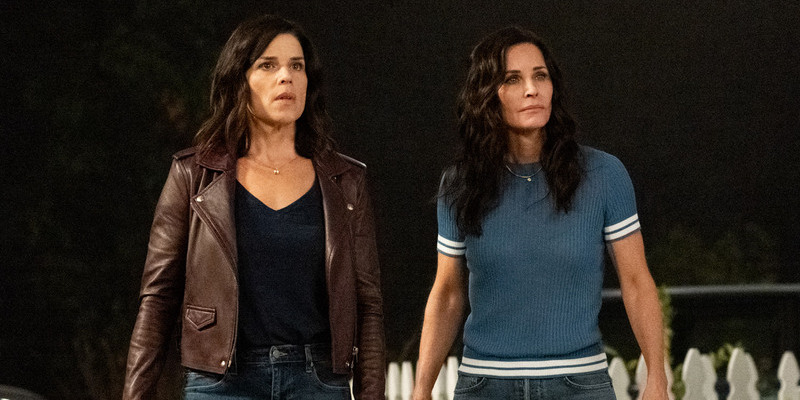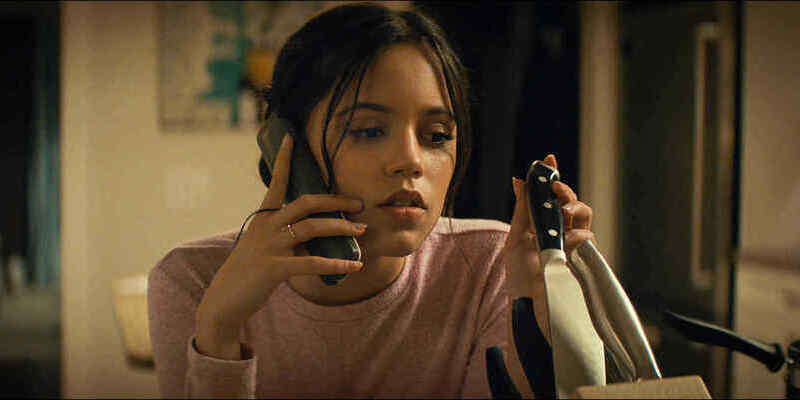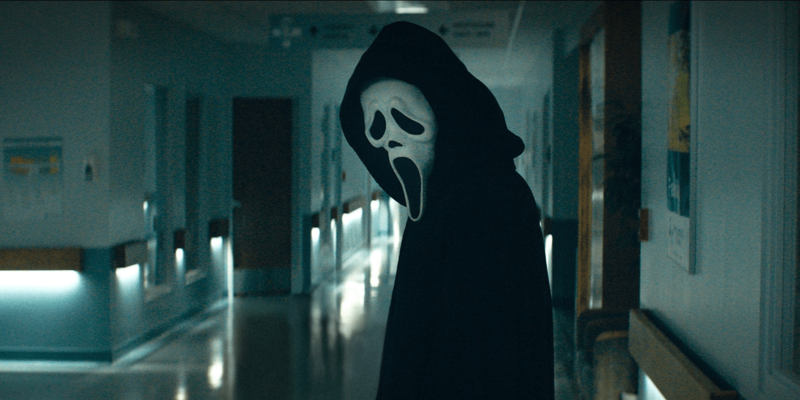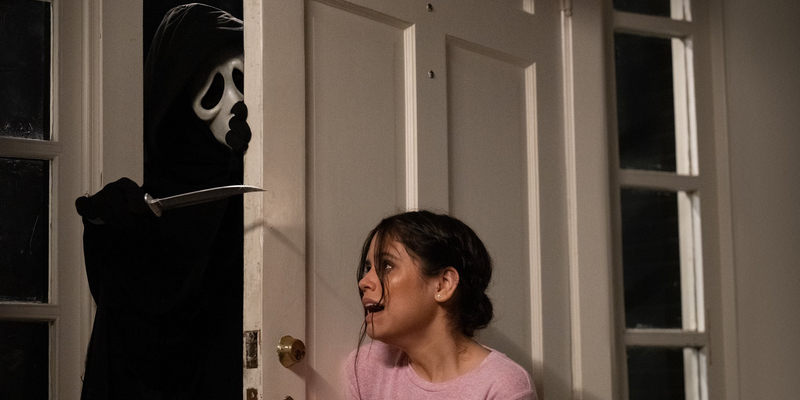
Review by
Eric Hillis
Directed by: Matt Bettinelli-Olpin, Tyler Gillett
Starring: Courteney Cox, David Arquette, Neve Campbell, Skeet Ulrich, Heather
Matarazzo, Marley Shelton, Melissa Barrera, Mason Gooding, Jenna Ortega, Dylan Minnette, Jack
Quaid

Of all the major horror franchises, Scream is the least
cinematic. The first movie arrived in 1996 when American cinema was
suffering a severe case of verbal diarrhea as every other screenwriter
wished to be the next Tarantino. Characters in '90s American movies talked
incessantly, often about other movies, and Scream took this
idea to new heights with both the killers and their victims picked from a
bunch of horror obsessed teens.
The trouble with the Scream movies is that they're
essentially Murder She Wrote episodes without Jessica
Fletcher. They're whodunnits in which nobody figures out who done it. A
protagonist, usually Neve Campbell's Sidney Prescott, adopts the role
of detective as they try to figure out who is behind the iconic Ghostface
mask, but it always ends with the killer having to reveal their own
identity. Peppered with a few stabbings, the Scream movies are
bogged down with dialogue as characters talk about who the killer might be
and what their motives are.

Even by the low standards set by previous instalments,
Scream (why can't you just call it Scream 5 FFS???) looks like
a movie that belongs on the small screen. It's a series of numbing
conversations shot like a daytime soap opera, complete with the botox-ed
faces you might find in such a drama. Occasionally there's a stabbing, which
are notably more sadistic here than in previous entries, but no more
thrilling.
With Prescott having left Woodsboro, a new final girl is selected by the
mystery killer in Sam Carpenter (Melissa Barrera), a twentysomething
whose teenage sister Tara (Jenna Ortega) survived an attack by
Ghostface. Sam recruits former Sheriff Dewey Riley (David Arquette),
who reluctantly returns to Woodsboro, quickly followed by Sidney and his
former lover, journalist Gale Weathers (Courteney Cox).

What follows is a tedious series of soap opera level revelations about
family histories and blandly staged stalk and slash sequences. Early on a
character mentions how the horror genre has left slasher antics behind and
for a minute we think this Scream might be about to riff on
the tropes on what has annoying been labelled "elevated horror." But no, the
series is still mired in decades old conventions - even
Psycho's shower scene is referenced.
Scream is so meta that several characters point out how
redundant and uninspired the movie they're stuck in really is, even going so
far as to point out some of the franchise's flaws. It's a remarkable
self-own, and you get the impression that the writers feel they're above
this sort of fare. But they're certainly not, as they can't even manage to
put together a simple slasher storyline without getting bogged down in
plotholes and falling into the void of logic gaps.

There are moments in Scream that display utter contempt for
the audience, culminating in a killer reveal that simply makes no sense in
the story's narrative. At one point our heroes have the chance to unmask the
killer but decide instead to simply walk away. What? We've spent an hour
watching these people incessantly debate who the killer might be and now all
of a sudden they lose interest? The bare minimum the script could have done
is remain consistent to its characters' motivations. When a character
suggests that this movie shouldn't really exist, you can't help but nod in
agreement. When the words "For Wes" appear on screen it feels like a final
insult rather than a loving tribute.

